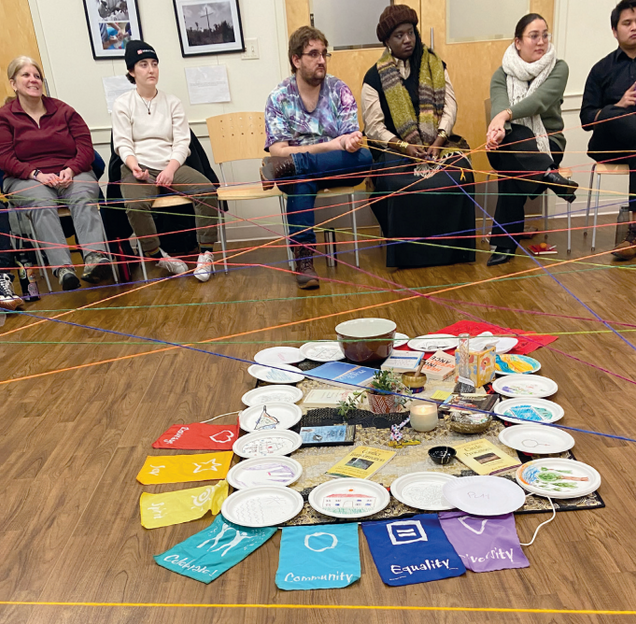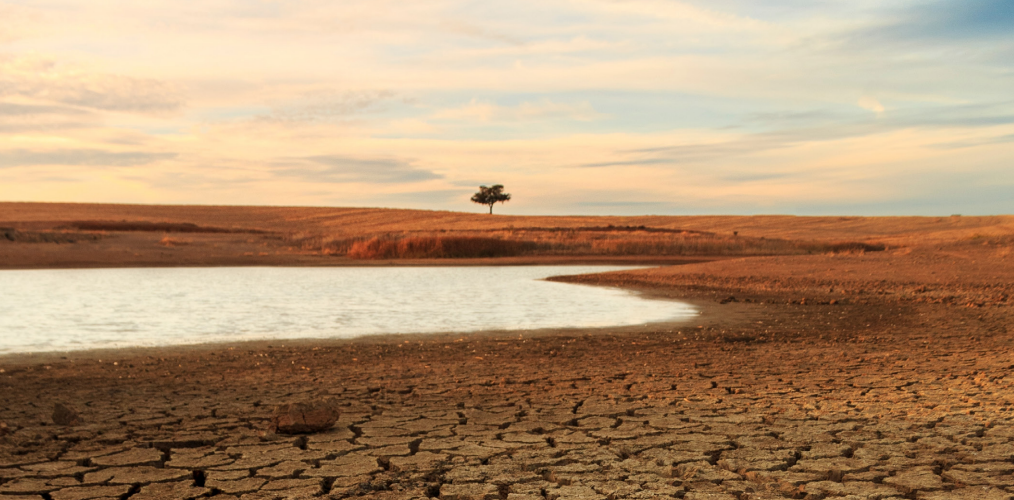This article was written by Clinical Assistant Professor of Religion and Conflict Transformation and director of the Tom Porter Religion and Conflict Transformation Program James McCarty and originally published in the 2025 issue of focus magazine, the annual publication of the BU School of Theology. This article can be found on page 24.
Thus says the Lord, your Redeemer, the Holy One of Israel… who makes a way in the sea, a path in the mighty waters… Do not remember the former things or consider the things of old. I am about to do a new thing; now it springs forth; do you not perceive it? I will make a way in the wilderness and rivers in the desert. Isaiah 43:14-19 (NRSV)
God is a God who does new things. God makes a way where there appears to be no way, as womanist wisdom regularly teaches us and this passage declares. God makes a way through mighty seas and desolate deserts. Whenever we see desolation, despair, or dissolution we should be reminded of these verses and look for the new thing that God is doing.
God did a new thing when Jesus declared freedom for prisoners, liberation for the oppressed, and salvation for sinners. From birth to baptism to transfiguration to resurrection, new things sprung up like dandelions throughout Jesus’s life. God did a new thing when God sent the Spirit moving about the earth like a wind and setting the world alight like fire. And God continues to do new things even into the 21st century.
The world, it seems, is ever in crisis. Our politics, as 24-hour news and social media doomscrolling reminds us, is perpetually in crisis. Our relationships are in crisis, as what has been called an “epidemic of loneliness” continues to spread across the US even as we are more “connected,” at least virtually, than we’ve ever been. Our climate and planet are in crisis, and we now know for sure that our actions have made the world our grandchildren will inherit more dangerous than the one we inherited. Fires, hurricanes, heat waves, and droughts will only increase, and with them violence and poverty. Even theological education, a backbone of the work of the church, is in crisis. Seminaries are closing, enrollments are declining, and Christianity, at least in this country, feels more and more co-opted by the powers of greed, hatred, and -isms. The old things are crumbling all around us.
It is in this context that our students and alumni are looking around and asking, “God, what is the new thing that you are doing?” And they are finding answers in all kinds of places. They are finding God answering and leading them to work as chaplains, teachers, organizers, healers, writers, artists, schol – ars, and, yes, innovative and imaginative pastors. One such alumna, Rev. Katie Cole (’12, SSW’12), is the interim director of the Greater Boston Interfaith Organization (GBIO). Recently having completed a successful housing justice campaign, GBIO is in a period of discernment as they seek to deepen their work and build bonds of solidarity across religious and racial differences.

Another alumna, Erin Freeborn (’07), leads the organization Communities for Restorative Justice as it continues to expand its reach across Massachusetts and helps to bring healing, accountability, and transformation to individual lives and communities affected by the criminal justice system.
A third alumnus, David Tran (’24), is leading a new, innovative church, The Table, in San Diego that is attending to the unique spiritual wounds of queer people and people of color who have spent time in predominantly white American Evangelical spaces. The church gathers to participate in embodied practices of lament, justice, and healing as those hurt by forms of Christianity intertwined with white supremacy seek new life-giving ways of experiencing the divine.
And, finally, several of our current students have been at the forefront of local interfaith organizing to achieve a cease-fire in Gaza and a lasting and just peace in Palestine and Israel. They have organized interfaith dinners, protests, and community-building events at which Muslims, Jews, Buddhists, and Christians have been active.
In each of these instances, we have examples of leaders who find inherited ways of doing organizing, social justice, pastoral ministry, and more in the midst of renewal and revival. But such revival demands renovation. They are looking around for the new things God is doing and seeking to partner with that renewing Spirit in their work within and beyond church walls. And they are finding partners in this work among their neighbors wherever they are.
Chaplains and pastors now undergo deeper training in trauma theory to attend to the wounds that corrupted systems, including religious ones, have caused.
The ministry and activism paradigms we’ve inherited—which include models of justice that sublimated racial and gender interests to “common denominator” issues in broad-based community organizing, punitive models of justice, ministry focused on souls over embodied experience, and the like—were too often caught up in the legacies of coloniality and the forms of domination associated with it. So even with all the good that has been done over the years within these frameworks, they have caused harm as well. The new things God is doing often involve healing inherited and collective traumas at the same time as pursuing justice and love in public. And so spaces are made for breathing and meditation in the midst of community organizing and justice, as practices of healing and accountability restore relationships in ways retributive approaches to justice has proven unable, and Christian churches reclaim non-Western cultural practices and the integration of nature in the Sunday service. These are new things!
To be responsive to this, STH recently launched a new curriculum that attends to these new things God is doing while building on the things we have always done so well. Chaplains and pastors now undergo deeper training in trauma theory to attend to the wounds that corrupted systems, including religious ones, have caused. Students pursuing the certificate in religion and conflict transformation, which I direct, are gaining skills in community organizing alongside skills in restorative justice and peacebuilding to bring together the best insights of both escalating and de-escalating conflict to achieve social transformation. And students are flocking to a relatively new certificate in faith and ecological justice to prepare to do ministry in, literally, a climate unlike any we’ve seen in our living memory.
God continues to do new things. In the midst of this movement of the Spirit, we may be tempted like those who opposed Jesus to double down on old ways. However, faithfulness requires attending to the newness God continues to bring into the world. Our students are already doing this, and our curriculum is now as well. The new things God is doing will last for a season or two and then another new thing will come. Being able to teach seminarians during this kind of radical renewal is a true joy and a humbling vocation. Thanks be to God.
